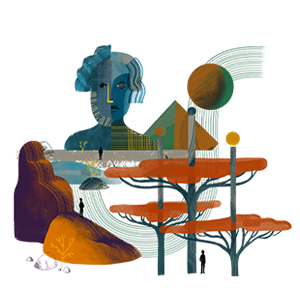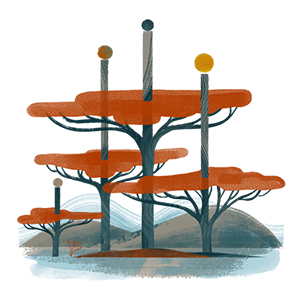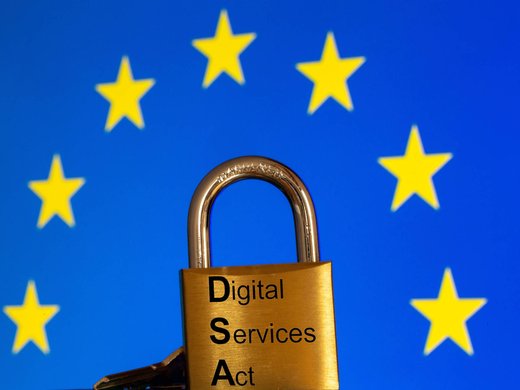Latin Americans, like people from any other region of the world, have a legitimate expectation that their online speech is moderated with respect to their local culture, realities and needs. But is that possible today?
Private content moderation has failed to consider geopolitical context, with the tragedy in Myanmar a more vivid, but certainly not isolated, example (Caplan 2018, 25). Facebook itself conceded to have underestimated the need for culturally mindful moderation (Zuckerberg 2018, 4). Simply hiring more Latin American moderators, however, might merely exacerbate the problem of their precarious and unhealthy working conditions (Barrett 2020, 12), with long-lasting negative psychological effects (Roberts 2019). This approach would also not address the troubling legitimacy deficit of a system where the shape of freedom of expression online is controlled by private police (Kaye 2019). The alternative of automated moderation poses its own set of problems. Artificial intelligence content decisions are far less transparent about their accuracy than is required. Arguably, as currently implemented in Latin America, this type of regulation violates the basic free speech standard in article 13 of the American Convention on Human Rights, which requires restrictions of speech to be proportional (Larrondo and Grandi 2021, 191). Under pressure from EU governmental bodies, platforms obscurely carry out automated moderation of terrorist and extremist content with disregard to the law in Latin American countries, resulting in over-censorship and lack of transparency (Pazmiño and Flores 2020). The Facebook Oversight Board, a new and highly centralized model for private content moderation, does a poor job of adequately protecting Latin American speech, as it inherently lacks representative elements and might reduce even further whatever legitimacy Facebook currently has if it proves to be “a body that would create and interpret privately legislated law alone” (Centro de Estudios en Libertad de Expresión y Acceso a la Información 2019, 3).
It would therefore seem that the most promising avenue is online content moderation guided and limited by Latin American courts. Indeed, judicial notice and takedown is a liability model adopted by countries with legal traditions that exert significant influence in the region, such as Argentina (Acosta 2020),1 Brazil (Zingales 2015), Chile and Colombia. The Inter-American Court of Human Rights has made strides in its freedom of expression case law in the last decades, with some impact on national legislation (Bertoni 2011, 353).
There is a particularly strong case to be made for local context-oriented moderation of hate speech. The new Latin America continues to struggle with profound social inequality (Calderón and Castells 2021), which continuously spurs the different waves of constitutionalism in the region.2 In light of a long history of disenfranchisement of native populations, people of African descent and women, protecting freedom of expression is equally about ensuring access to media and enabling communicative capacity as it is about warding off government censorship (Botero 2011). Inequality shapes hate speech content, use and its social effects in the region. The reality of online hate speech in Latin America today reflects “the experiences of a region that has both endured historical censorship of voices of dissent, while racial minorities have been stigmatized and exposed to racial violence most typically at the hands of law enforcement officials” (Hernandez 2010, 840).
Recent legal developments in Latin America meant to combat online hate speech present three main characteristics. First, many of these developments come as legislative changes to create or amend penal law dispositions, increasing the hold of criminal law logic over online speech. Second, in some countries, the executive branch has manoeuvred presidential decrees, administrative orders and other tools against allegedly abusive online speech, an avenue that is constitutionally unfit for restricting online speech. Third, countries have enacted legislation that holds digital platforms liable for hate speech without offering clear substantive standards, inviting even more private censorship (Hernandez 2020). Therefore, improvements in liability rules in countries such as Ecuador have not been enough to offer adequate protection for expression or for the victims of abusive speech (Gómez 2019, 17).
Some examples of the challenges that exist in Latin American countries include historically oppressed groups that are victims of online hate speech and are traditionally excluded from the private media; legislators who are slow to improve the law on online content moderation; and executive branches that frequently wield censorship measures under the guise of curbing abusive speech. Many would believe the perfect solution to be Latin American transformative constitutionalism. One of the main characteristics of this movement, celebrated by legal scholars, is the ascension of courts with stronger procedural and substantive powers that will help reverse historical inequality by protecting minorities and their fundamental rights (Uprimny 2011).
Courts have missed the opportunity to adequately help minorities in speech cases by favouring powerful plaintiffs, suppressing speech based on erratic legal reasoning, on one hand, and refusing to enforce criminal sanctions that would protect historically oppressed groups, on the other.
The track record of Latin American courts on freedom of expression has not been stellar, however. They apparently lean too conservative to be able to offer a hand in online hate speech moderation. In certain countries, they have failed as constitutionally “endogenous controls” against censorship as they sided with governments for political reasons. In Argentina, for example, courts have adopted a hostile stance on social protests, assuming unimpeded streets have intrinsic value, and one that trumps freedom of expression (Gargarella 2011, 56). Although scholarship and higher court rulings in the region prescribe the principle of proportionality and balancing as sophisticated tools to help judges decide cases where free speech collides with other fundamental rights, such as equality, privacy and right to image,3 statistical evidence from the trial court level shows cases about internet expression are often decided arbitrarily.4
Courts have missed the opportunity to adequately help minorities in speech cases by favouring powerful plaintiffs, suppressing speech based on erratic legal reasoning, on one hand, and refusing to enforce criminal sanctions that would protect historically oppressed groups, on the other. In Brazil, for instance, trial courts have historically rejected convicting online and offline racist speech by creating a theory that offences meant as humour are not punishable, a doctrine that has been described by scholarship as “recreative racism” (Moreira 2019). Part of the reason why Latin American courts have been remiss at using such transformative constitutionalism tools to criminally prosecute racist speech is that “the criminal context with its threat of imprisonment can inhibit judicial willingness to make racist expressions legally actionable because they are a predominant feature of the culture” (Hernandez 2010, 834). Part of the reason is also that judges are not immune to their ideology when deciding about speech, which means a conservative judicial body will likely decide conservatively on hate speech cases (Epstein, Parker and Segal 2013). And the composition of the judiciary in Latin America is far from diverse and inclusive, with the effects of sexism, for example, palpable still today.5
It would appear many have been fooled by the promised efforts of inclusive rights protection by courts in the battle against hate speech, assuming bold progressive statements in constitutional court rulings were a signal of change. There is no evidence, however, that courts in Latin America have contributed to systematic suppression of hate speech despite constitutional and legal provisions spurring and empowering them to do so. This phenomenon has been described as the “mission accomplished syndrome.”6 Are there any hopes, then, for courts as agents of change against online hate speech? Getting judges to adopt a more progressive stance on freedom of expression would mean somehow exerting an external check on their autonomy. Ironically, the main external check on judicial power in Latin America comes from concentrated political power, especially at the hands of the administration. An alternative way forward, then, would be to gradually educate judges on the novel aspects of online hate and their relationship with social inequality: it is less about the content itself and more about the digital hate culture and the virtual spaces that hate speech groups foster.7 This might prove fruitful as when it comes to protecting freedom of expression, judge ideology is a factor that explains the readiness of Latin American courts to sometimes oppose executive branch arbitrariness (Ingram 2015).
Ultimately, even at their best, courts in Latin America cannot be the democratically legitimate anchor that would check the power of exclusively private content moderation by digital platforms from the Global North. They can only review a fraction of abusive content, lack technical knowledge and oppose barriers to minority plaintiffs due to unequal access to justice, which is especially problematic when it comes to online hate speech (Keller 2020). The author would argue that courts are not the appropriate arena for substantive review of decisions by platforms on the merits of speech, even if they could play a leading role in enforcing procedural content moderation guarantees (Hartmann 2020c).
The most promising mechanism for increasing the legitimacy of content moderation in Latin America is the increase in formal and informal participation of civil society in the decisions about abstract rules as well as how to apply them to specific cases. There has been a surge of identity-based social movements in the region in the last two decades, strengthened by online mobilization (Calderón and Castells 2021). Civil society organizations in Latin America have taken up the opportunity to actively participate in content moderation, even though “the timing and scope of the engagements provide little opportunity for meaningful input, and the obscure internal structure of companies leaves stakeholders in the shadows as to how that input is processed” (Dvoskin 2020, 11). What is needed is legislation to structure participation mechanisms for users themselves in content moderation so that the people of Latin America do not have to depend on the generosity of private platforms to play a role in determining the limits of their own freedom of expression online.



























